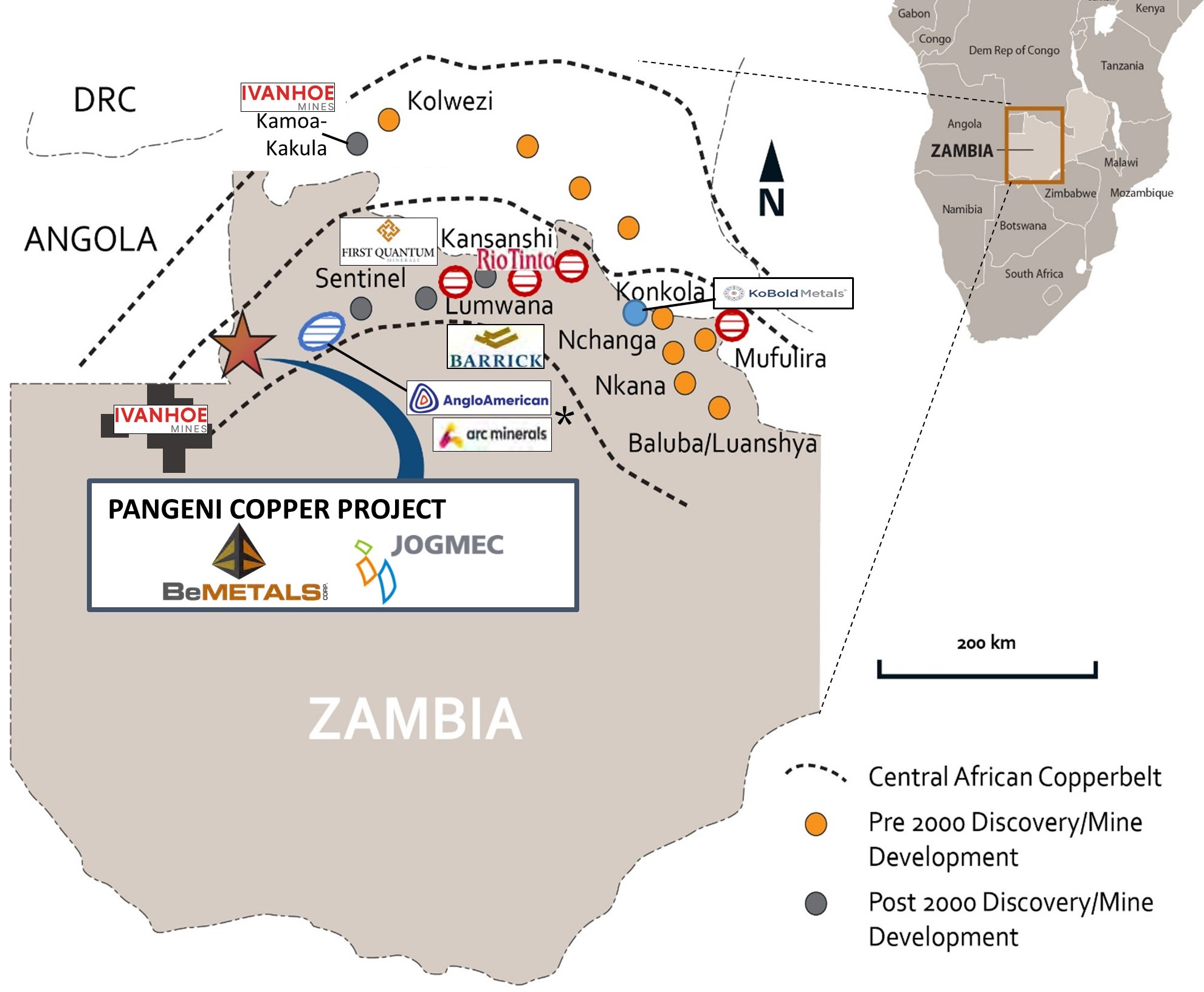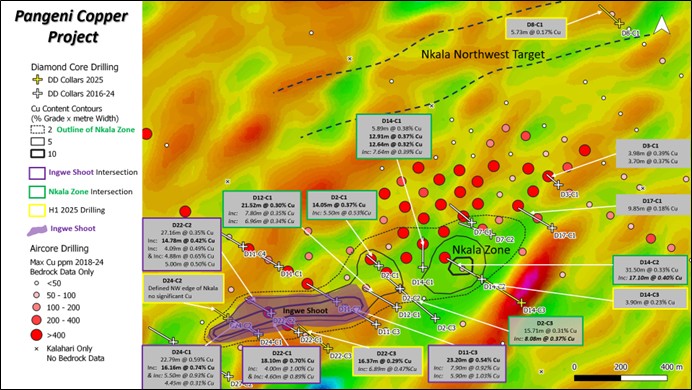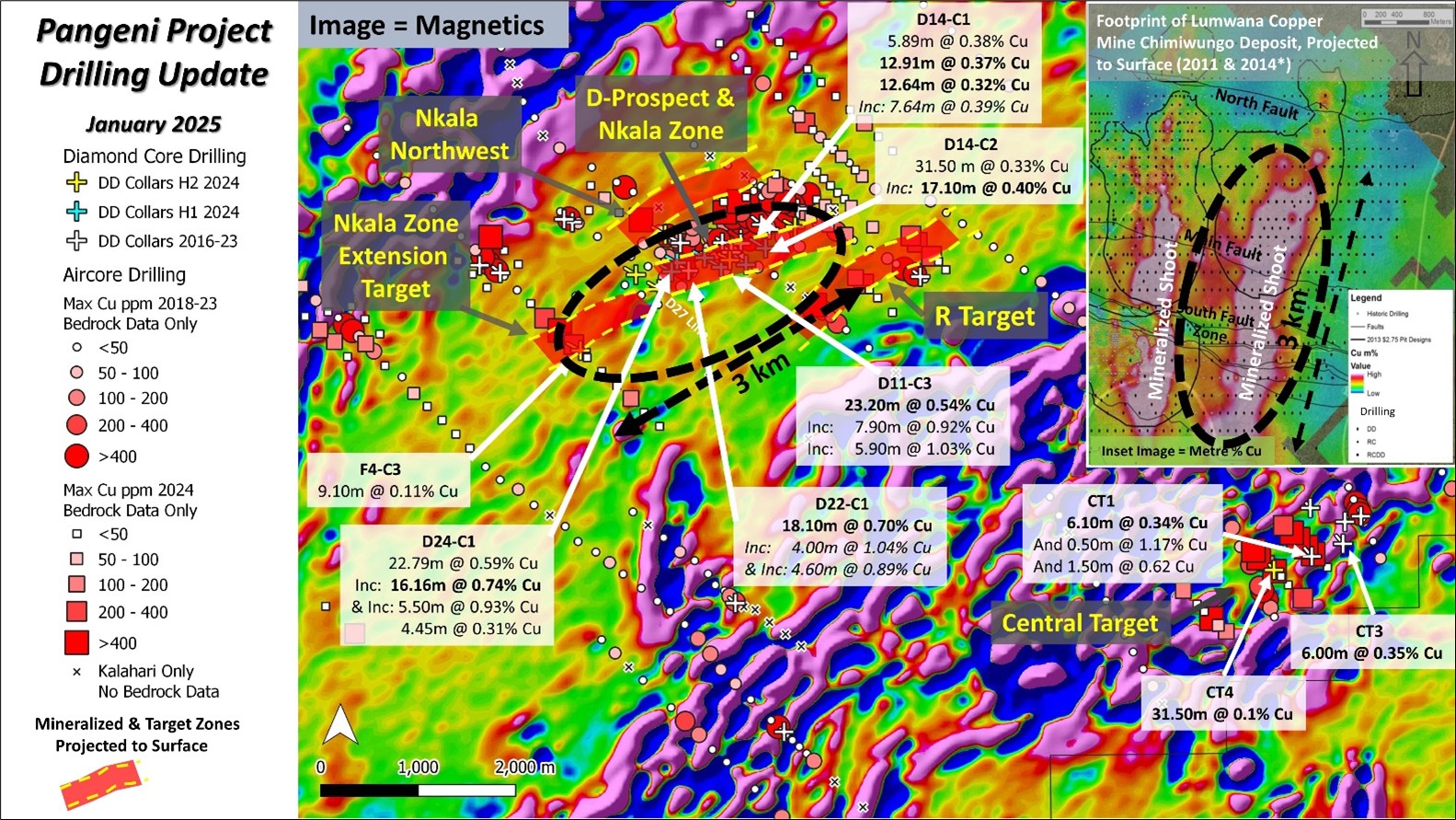Pangeni Copper Project — Zambia
Overview
The Pangeni Copper Project is a large, highly prospective exploration property located on the western extension of the Central African Copperbelt in north-west Zambia. Pangeni sits within the Lufilian Arc and is an emerging discovery that has returned multiple encouraging drill intersections from shallow aircore and follow-up diamond/core programs.
Key highlights
- Located along the western extension of the world-class Central African Copperbelt — a region that hosts numerous major copper mines.
- Discovery and continued expansion of the D-Prospect, including the Nkala Zone and Ingwe Shoot, showing shallow, wide copper intersections.
- Active, multi-phase exploration program: shallow aircore to generate targets and diamond/core drilling to test and extend higher-grade zones. Recent programs included ~5,000 m of aircore and 2,000–2,500 m of core drilling.
- Strategic technical and funding partner: co-funding arrangements with JOGMEC (Japan Organization for Metals and Energy Security) to accelerate work programs.
Latest exploration activity (summary)
BeMetals’ recent drilling at Pangeni has focused on testing continuity of the Nkala Zone and Ingwe Shoot and testing satellite targets along strike and beneath Kalahari cover. Results reported to date include multiple intercepts of tens of metres of low-to-moderate grade copper (examples publicly disclosed in company releases and technical reports). The latest programs (2024–2025) combine systematic shallow aircore to locate new targets and follow-up core drilling to better define mineralized widths and grades at priority targets within the D-Prospect area.
Drilling Highlights to Date:
- Outlined the Ingwe Shoot as a higher-grade copper zone with dimensions of approximately 600 metres long, 14 to 23 metres thick, and 250–350 metres wide. See Figure below.
- The Ingwe Shoot is within the broader Nkala Zone, now spans at least 1.4 kilometres along trend of the larger mineralized corridor over 1.7 kilometres in length.
- Drill hole D8-C1 has intersected promising geology and copper anomalies under the shallow cover at the new Nkala Northwest target.
Technical summary
- Geology: Hosted within Katangan Supergroup metasediments and interpreted as a westerly extension of Copperbelt stratigraphy — exploration style is consistent with stratabound/structurally controlled sediment-hosted copper deposits in the Domes Region.
- Exploration methods used: geophysics (magnetics), surface mapping, systematic shallow aircore sampling under Kalahari cover, followed by diamond core drilling on priority targets.
- Notable results (examples): multiple recent holes reporting intersections in the 0.2–0.7% Cu range with individual intervals measuring multiple metres to tens of metres. See company technical tables and news releases for full assay tables and QA/QC data.
Why Pangeni matters
- Scale potential: The property has demonstrated an extensive footprint of copper anomalism with mineralization open along strike and down-dip — characteristics favourable for a large-scale discovery beneath relatively thin cover.
- Proven regional context: Situated in a proven copper province where nearby multi-billion ton deposits (and operating mines such as Barrick’s Lumwana Mine and First Quantum’s Sentinel Mine) show the potential for large, economic deposits.
- Cost-efficient exploration model: The combination of shallow aircore scouting (low cost over wide areas) followed by targeted core drilling has efficiently vectorized exploration and generated drill targets with economic potential.



